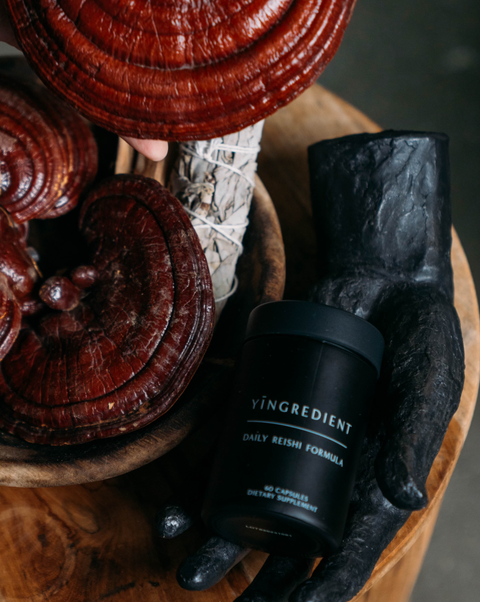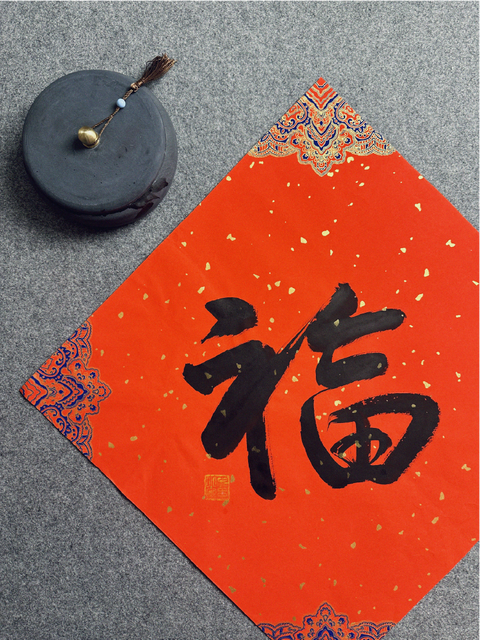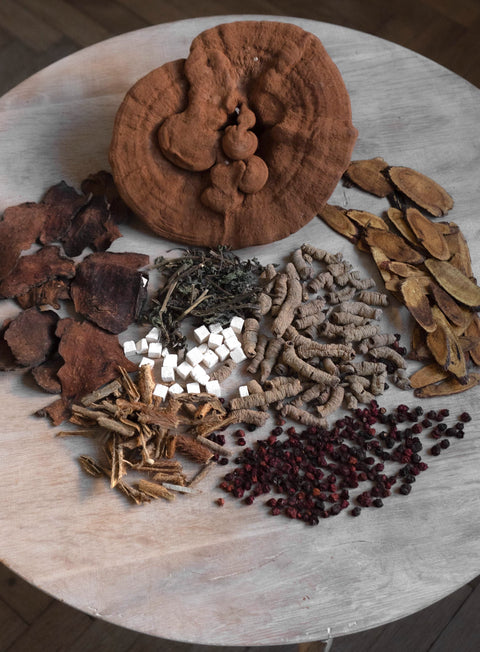
Yin, Yang, & Beyond: The Guiding Theories of Traditional Chinese Medicine
At its core, TCM is a simple, logical therapeutic practice that focuses on restoring balance. But look closer and you’ll find a deeply theoretical practice with complex and rich insights on the art of living well. Here are just a few of the foundational concepts that define the practice of TCM:
-
Yin and Yang
At the heart of Traditional Chinese Medicine (TCM) lies the concept of Yin and Yang, representing the dualistic forces that govern the universe – and our bodies.
Yin, characterized by qualities such as darkness, coolness, and receptivity, is the passive, nurturing aspect. Its complement, Yang, embodies qualities like warmth, brightness, and activity, representing the active, transformative aspect.
In TCM, health is when these two forces are in a stable, delicate balance. When Yin and Yang are in harmony, the body functions optimally, but when this balance is disrupted, it can lead to illness. TCM treatments aim to restore this equilibrium, addressing the root causes of imbalances rather than just alleviating symptoms. By understanding and harmonizing the interplay of Yin and Yang, TCM empowers individuals to promote their own well-being.
-
Qi
Qi (pronounced “chee”) is the fundamental life force that animates and sustains all living things. It is the energy that flows through the body and allows your organs, tissues, and cells to function well.
This vital force circulates along specific pathways known as meridians or channels. There must be a smooth and even flow of Qi to maintain good health. Blockages or disruption in the flow of Qi can lead to discomfort, pain, and eventually illness.
All TCM practices, including acupuncture, herbal medicine, and Qigong, are designed to regulate and enhance this flow of Qi, ensuring that it harmonizes with the body's Yin and Yang balance.
TCM draws inspiration from the natural world, and the Five Elements theory is a testament to this connection.
The core five elements—Wood, Fire, Earth, Metal, and Water—represent different aspects of nature and are associated with specific organs, emotions, colors, seasons, and more. For instance, the Wood element is associated with growth and is linked to the Liver, anger, green, spring, eyes, and tendons.
Just as the elements affect the environment, so do they affect the body. The interactions and relationships among these elements give us a framework for understanding the dynamics of nature within the body. TCM practitioners use the Five Elements theory to diagnose imbalances and create treatment plans that restore harmony within the body.
-
Organ Systems
In TCM, the body is seen as a complex symphony of interconnected organ systems. While each has its unique role, it also affects (and is affected by) every other system.
The main TCM organ systems (Heart, Pericardium, Lungs, Large Intestine, Small Intestine, Liver, Gallbladder, Spleen, Stomach, Urinary Bladder, and Kidneys) are more than just physical organs; they are also associated with emotions, energies, and meridians. For example, the heart is not only responsible for pumping blood but also for housing the Shen, or soul/spirit, and managing emotions.
TCM practitioners assess the balance and function of these organ systems to understand the root causes of health issues. By considering both the physical and energetic aspects of the organ systems, TCM offers a comprehensive approach to health that addresses the whole person, promoting balance and well-being.
A Traditional Medicine for Modern Well-Being
Traditional Chinese Medicine is always evolving but never loses sight of its ancient holistic roots. Yingredient exists to bring the beauty of balance to you, through the power of TCM, by crafting time-honored herbal remedies designed for our modern lives.
Start your journey with Traditional Chinese Medicine today with Daily Reishi Formula. Shop Now.
About the Author:

Kate Downes, L.Ac MSAOM
Kate Downes, a Licensed Acupuncturist and Herbalist with an MSAOM degree, combines her passion for herbal medicine and Chinese medicine into a thriving career. Initially practicing in Indianapolis, IN, she embraced a global journey, transitioning from face-to-face care to sharing her expertise as a remote herbalist and writer. Collaborating with wellness brands and health pioneers, Kate focuses on women’s health, using her platform to promote balance and wellness. Her transition into writing allows her to reach a wider audience, establishing her as a trusted expert in the wellness community.





Comments (0)
There are no comments for this article. Be the first one to leave a message!